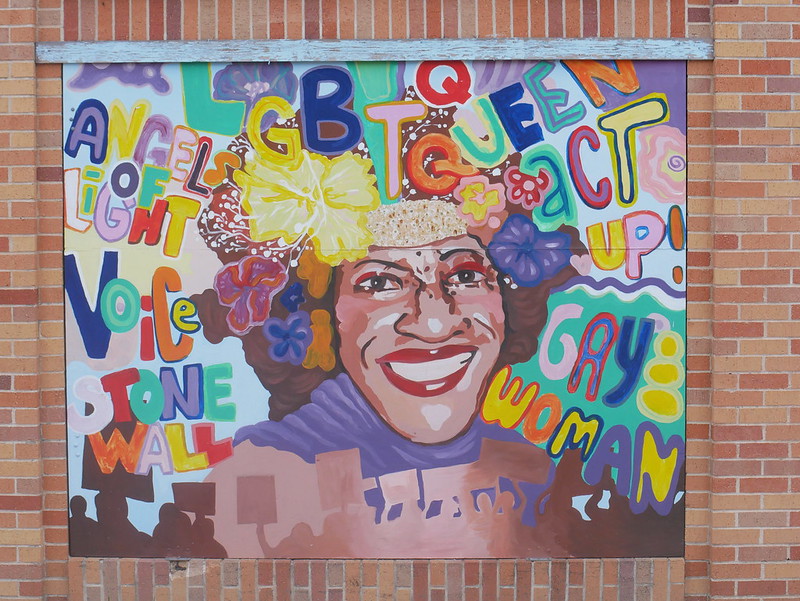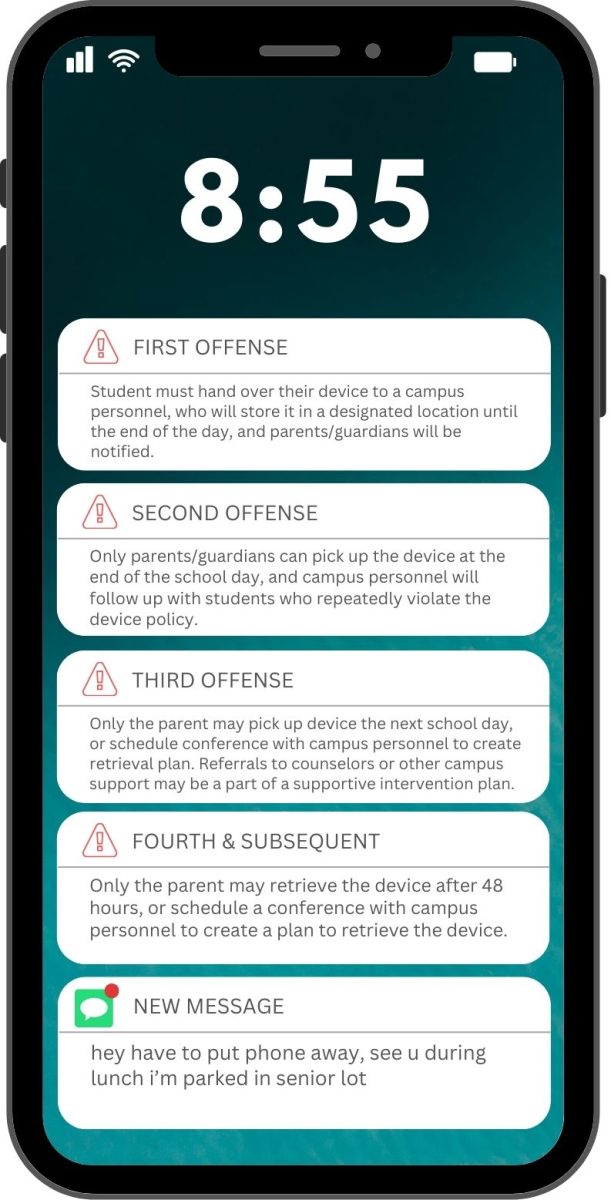Senate Bill 3, the “critical race theory” bill, has ignited debate on the McCallum campus. This controversial legislation that restricts how history is taught in Texas public schools was signed by Gov. Abbott on Sept. 17 and will go into effect Dec. 2. Supporters of the bill claim that discussing all viewpoints on race and history prevents the indoctrination of students, while opponents claim the bill infringes on a teacher’s autonomy to teach history accurately.
Defining critical race theory
What defines critical race theory is a question contested on both sides of the aisle. The answer you receive will depend on who you ask.
“Critical race theory takes the same Marxist concept, except it replaces class with race,” said U.S. Sen. Ted Cruz, R-Texas, at the Faith and Freedom Coalition’s Road to Majority Conference on June 18 in 2021. “Critical race theory is bigoted, it’s a lie and it is every bit as racist as the Klansmen in white sheets.”
Social studies teacher Kristen Wachsmann has a slightly different take.
“When I was in college,” Wachsmann said, “A lot of my history professors would explain that how we understand identity is an intersection of many things, including race, class, gender, sexual orientation, religions and socioeconomic class. For this particular lens, the idea is re-examining how we understand race in our own country and how it works with systems of power in society.”
In English teacher Daniel Myers’ eyes, SB 3 isn’t really a bill about critical race theory. Instead, Myers says, the term critical race theory has been co-opted by Republican lawmakers because of its loaded language.
“They [Republican lawmakers] have latched onto critical race theory because it has words that are helpful to them,” Myers said. “‘Theory’ has this connotation of an unproven idea. With ‘critical,’ they’re saying ‘the people who are saying this stuff, they’re just being critical.’ It’s smoke and mirrors. Really, they’re saying they don’t want us putting any sort of blame or onus on white people.”
While SB3 doesn’t explicitly mention the words critical race theory, according to proponents of the bill, one of its purposes is to dismiss claims of systematic racism in America.
“Senate Bill 3 will make certain that critical race philosophies…are removed from our school curriculums statewide.” Texas Lt. Governor Dan Patrick said. “Parents want their students to learn how to think critically, not be indoctrinated by the ridiculous leftist narrative that America and our Constitution are rooted in racism.”
Opponents, however, contend that the “debate” over CRT really isn’t a debate. In an article for The Atlantic, Ibram X. Kendi, author of How to Be An Antiracist, argues that the Republicans have redefined CRT to fit their own narrative and have created a culture war over a faulty definition.
“The Republican operatives, who dismiss the expositions of critical race theorists and anti-racists in order to define critical race theory and anti-racism, and then attack those definitions, are effectively debating themselves. They have conjured an imagined monster to scare the American people and project themselves as the nation’s defenders from that fictional monster.”
What’s inside the bill
Instead of explicitly mentioning critical race theory, SB3 outlines how educators can teach their classes. It begins by stating that if a teacher chooses to discuss a “widely debated and currently controversial issue” the teacher must “strive to explore that topic from diverse and contending perspectives without giving deference to any one perspective.”
According to proponents of the bill, this requirement ensures that all perspectives are equally explored and students aren’t coaxed into believing that one side of a debate is inherently correct.
Junior Reva Gill, however, doesn’t believe equal representation means fair representation. While reading through SB3 in her women’s studies class, Gill was disturbed by what the actual implementation of this requirement would look like.
“If you were to talk about slavery, for example, you can not put emphasis on the fact that slavery was wrong,” Gill said. “You have to look at both sides, so not only do you not get to emphasize the immoral aspects of slavery, you also have to present the motives behind slavery in an unbiased fashion.”
Gill believes the specific wording “widely debated and currently controversial issues” is in place to specifically limit the discussion of race.
“My guess is that if you were to say ‘9/11 is bad, terrorists hurt our country’ without providing a concession or an unbiased point of view, nobody would get on your back about that,” Gill said. “Nobody is going to stop you from saying that, because it falls in line with the rest of the identifying morals that America holds. But when it comes to controversial topics such as racism and white supremacy, that’s where they are limiting what you can and can’t say.”
Another contested section of the bill is the requirement that educators may not teach that “an individual, by virtue of the individual’s race or sex, bears responsibility for the actions committed in the past by other members of the same race or sex.” The bill outlines that students should not “feel discomfort, guilt, anguish or any other form of psychological distress on account of the individual’s race or sex.”
Similar to Gill, U.S history teacher Joseph Carcione finds this specific wording to be one of the most problematic aspects of the bill.
“The problem is, once a law is made, a parent can still sue a school district saying ‘My kid was made to feel bad in their history class,’” Carcione said. “And then that could lead to unnecessary litigation.”
Wachsmann claims that parts of the bill contradict what other sources, such as College Board, are instructing her to teach. Sections of the bill that instruct teachers to not make students feel “guilt, anguish, or any other form of psychological distress” due to their race may limit her ability to explore racial identities within her AP World History course.
“Other institutions like College Board or even TEA say that I need to be examining these identities,” Wachsmann said. “So it seems like teachers, especially in my situation, are being put in a difficult situation where we have two institutions we’re listening to and then their views are in conflict, so I don’t know where that leaves me.”
How it affects McCallum
Alongside conflicting requirements, Myers worries about how avoiding contentious issues will affect his student’s interest and engagement in school.
“When I was a kid, I thought social studies was rivers and generals,” Myers said. “And it wasn’t until I got to college and I realized it was stories about people and the way we think about the world. All of a sudden I was learning something. So I feel like they’re asking us to go back to rivers and generals.”
Myers believes this shift back to “river and generals” will only harm the intellectual development of students.
“I think that those of us who are in these rooms doing the work know that it is a waste and it kills creativity and curiosity and all those things that supposedly we’re supposed to be here to nurture,” Myers said.
Similar to Myers, in Wachsmann’s eyes, the central priority of a teacher is to best serve their students; however, she’s concerned SB3 has the potential to limit her teaching capacity.
“I’m very concerned with my ability to teach the course in the way that it deserves to be taught, which is to look at all points of view and examine how we built our society,” Wachsmann said. “It’s not my job to teach students what to think. It is my job to accurately present facts of what’s happened. I want to be able to do that in its truest form, so a bill that jeopardizes that is very concerning to me, and it worries me.”
Even as an English teacher, Myers believes SB3’s influence seeps into how he’s expected to teach American literature.
“You can’t separate teaching American literature from teaching about the truth of American history and power and marginalization,” Myers said. “I’m just trying to do my job right. I feel like you can’t study important American literature without also discussing power, and in America, power is very much tied up in race.”
In Gill’s eyes, SB3 is just another roadblock for teachers trying to do their jobs.
“Our schools are already limited by so many factors including socio-economic, race, segregation, among other things, as well as being massively underfunded,” Gill said. “Adding this restriction, stripping away the autonomy…while it’s heartbreaking it is not surprising.”










Perla Vela • Oct 18, 2021 at 11:24 am
Thank you for talking about this, it’s incredibly frustrating as a student to be limited in learning.